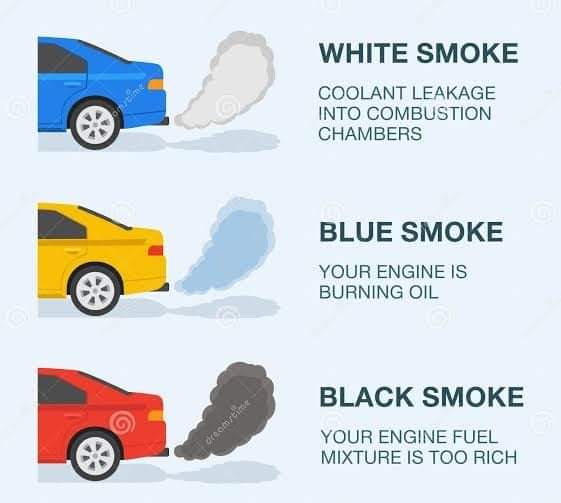EXHAUST SMOKES OVERVIEW
1. Types of car exhaust smoke
- White smoke: indicates coolant is burning due to a head gasket leak, cracked engine block, or a damaged cylinder head.
- Blue smoke: suggests oil is being burnt due to worn valve seals, piston rings, or a damaged PCV valve.
- Black smoke: indicates an excessively rich fuel mixture or incomplete combustion due to clogged air filters, malfunctioning fuel injectors, or faulty sensors.
2. Causes and remedies of white smoke
- Causes: head gasket leak, cracked engine block, or a damaged cylinder head.
- Remedies: repair or replace the head gasket, engine block, or cylinder head.
3. Causes and remedies of blue smoke
- Causes: worn valve seals, piston rings, or a damaged PCV valve.
- Remedies: replace the worn seals, rings, or valve, or rebuild the engine.
4. Causes and remedies of black smoke
- Causes: clogged air filters, malfunctioning fuel injectors, or faulty sensors.
- Remedies: replace the air filter, clean or replace the fuel injectors, or replace the faulty sensor.
5. Other possible causes of exhaust smoke
- Overfilled engine oil level
- Faulty turbocharger or intercooler
- Incorrect fuel octane rating
- Malfunctioning EGR valve
- Damaged catalytic converter
6. Precautions and maintenance tips
- Regular engine oil changes and filter replacements
- Check coolant levels and perform regular engine maintenance
- Use the correct fuel octane rating and avoid overloading the vehicle
- Check the EGR valve and catalytic converter for damage or clogging.




